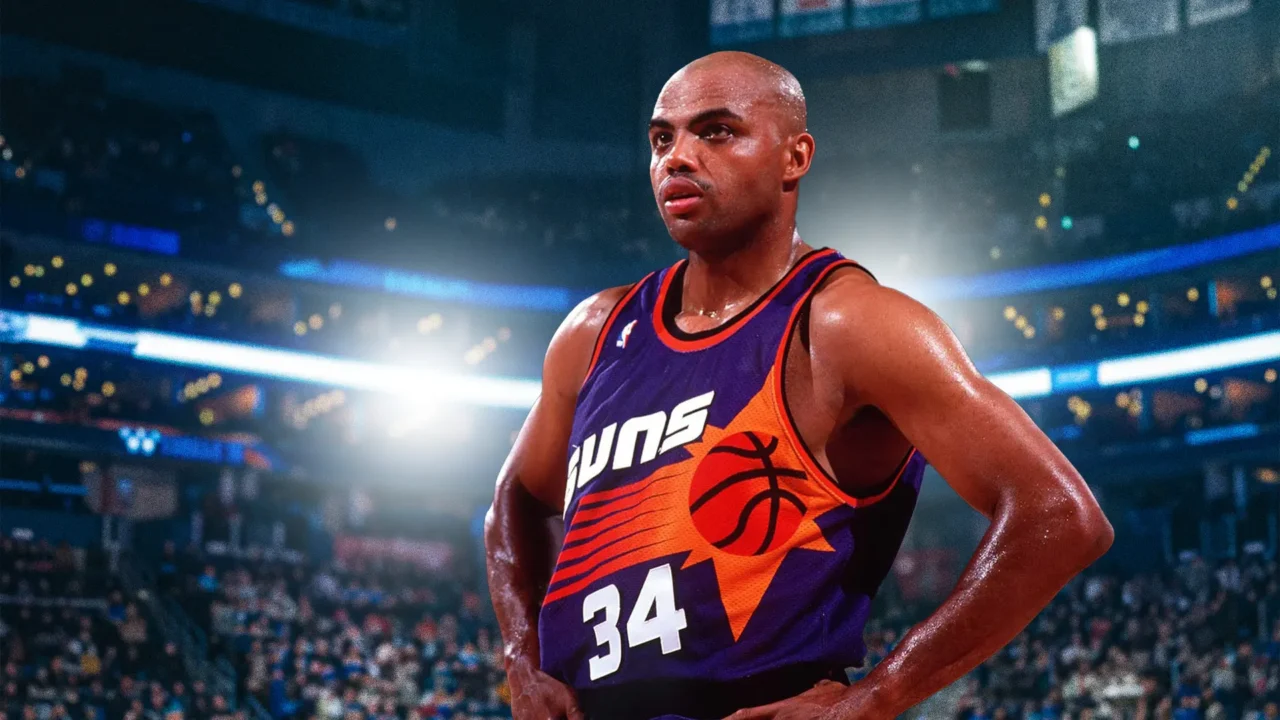Who is Charles Barkley?
Charles Barkley, one of the NBA’s most dynamic and outspoken players, defined an era of basketball with his incredible skill and larger-than-life personality. From dominating on the court as an undersized forward to becoming a beloved TV analyst, Barkley’s legacy extends far beyond the game.
3 Minute Read

Early Life and College Career
Born on February 20, 1963, in Leeds, Alabama, Charles Barkley grew up in modest circumstances. A late bloomer, Barkley didn’t stand out in basketball until his senior year of high school. He eventually earned a spot at Auburn University, where he quickly became a force of nature. Known for his rebounding prowess and surprising agility, Barkley earned the nickname “The Round Mound of Rebound” during his college career. In three years at Auburn, he averaged 14.1 points and 9.6 rebounds per game, leading the team to its first NCAA Tournament appearance in 1984.
NBA Career Beginnings
Barkley entered the NBA as the fifth overall pick in the 1984 NBA Draft, joining the Philadelphia 76ers. Despite being undersized for a power forward at just 6’6”, he became a dominant force, using his strength, athleticism, and basketball IQ to outplay taller opponents. Barkley quickly made a name for himself, earning a spot on the NBA All-Rookie First Team in 1985.
Rise to Stardom
By his third season, Barkley was a double-double machine and one of the league’s top players. Known for his versatility, he could score, rebound, and pass at an elite level. Barkley led the league in rebounds in 1987 with an impressive 14.6 per game. His explosive style of play earned him five All-NBA First Team selections and 11 All-Star appearances throughout his career.
MVP Season and Finals Run
Barkley’s defining moment came during the 1992-93 season after being traded to the Phoenix Suns. In his first season with the team, he averaged 25.6 points, 12.2 rebounds, and 5.1 assists, earning him the NBA MVP award. Barkley led the Suns to the NBA Finals, where they faced Michael Jordan and the Chicago Bulls. Despite Barkley’s heroic efforts, including a 42-point game in the Finals, the Suns fell short in six games. His Finals run remains a testament to his ability to elevate his game when it mattered most.
Later Years and Retirement
In the twilight of his career, Barkley joined the Houston Rockets, forming a veteran superteam alongside Hakeem Olajuwon and Clyde Drexler. Although the team fell short of championship aspirations, Barkley continued to be a dominant player. He retired in 2000 as one of the most statistically impressive forwards in NBA history, finishing with career averages of 22.1 points, 11.7 rebounds, and 3.9 assists per game.
Career Stats and Achievements
- Points per Game (PPG): 22.1
- Rebounds per Game (RPG): 11.7
- Assists per Game (APG): 3.9
- Steals per Game (SPG): 1.5
- Blocks per Game (BPG): 0.8
- Player Efficiency Rating (PER): 24.6
- Win Shares (WS): 177.2
- Value Over Replacement Player (VORP): 69.5
Notable accolades include the 1993 MVP award, 11 All-Star selections, and two Olympic gold medals as part of the iconic Dream Team in 1992 and 1996.
Post-Basketball Career
After retiring, Barkley transitioned to a successful career in broadcasting. As an analyst on TNT’s “Inside the NBA,” he has become one of the most entertaining and insightful voices in sports media. His humor, candor, and willingness to tackle tough subjects have made him a beloved figure among basketball fans.
Legacy
Charles Barkley’s legacy is multifaceted. On the court, he is remembered as one of the greatest forwards in NBA history, a player who defied convention and dominated against the odds. Off the court, his charisma and outspokenness have made him a cultural icon. Whether he’s delivering a fiery monologue on live TV or recounting tales of his playing days, Barkley’s influence continues to resonate in the world of basketball and beyond.


